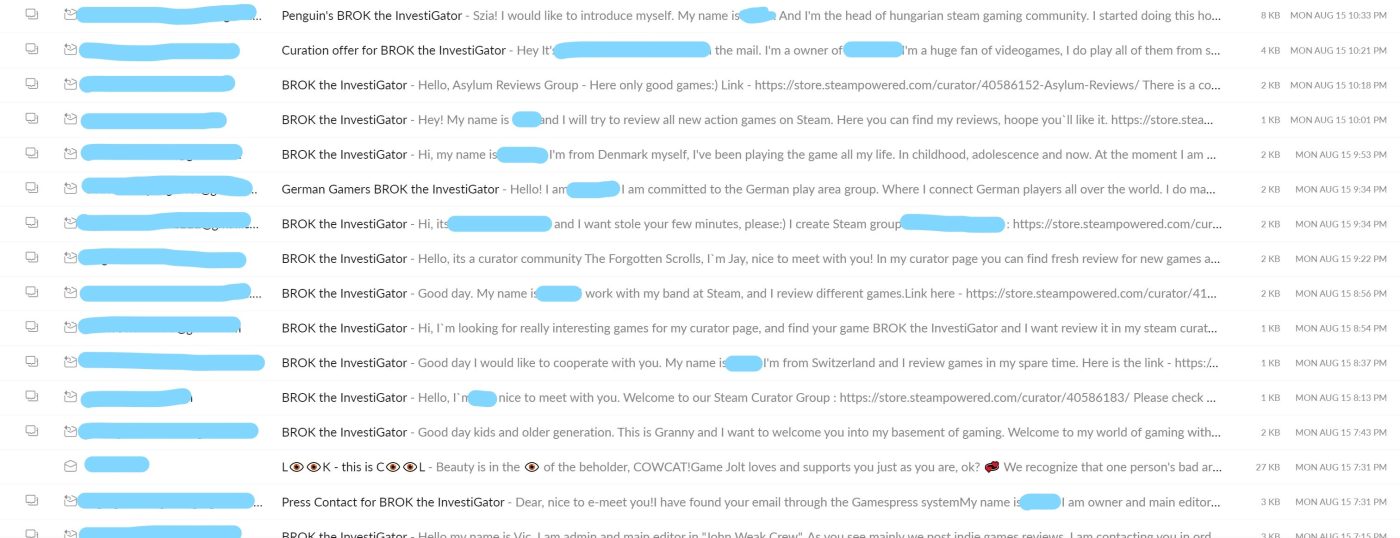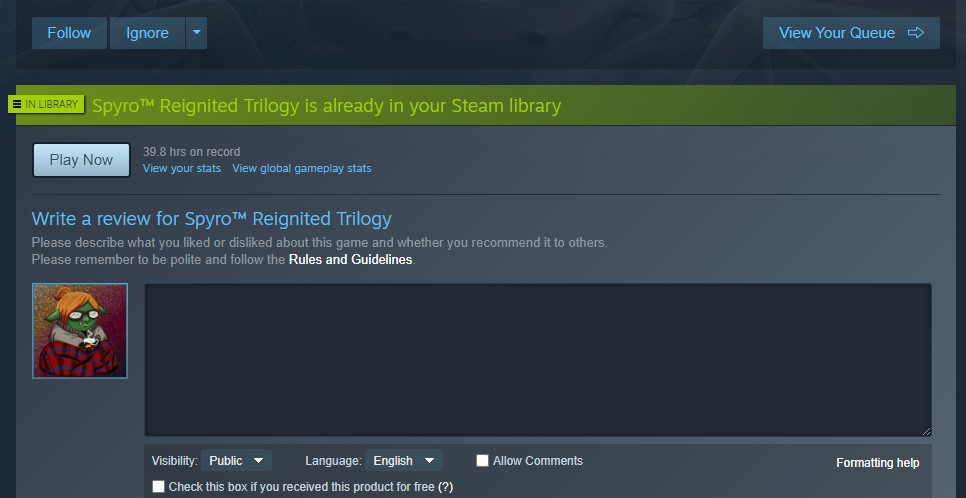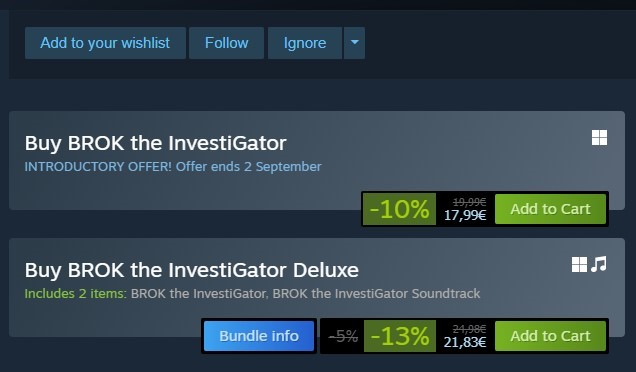How BROK the InvestiGator Lead to a Real World Scam Reveal

It is likely that you have heard the term “Review-Bombing”. It means that a piece of media has received a surprising number of negative reviews, and this sometimes is of no fault of the piece of media itself. Life Is Strange: True Colors was review bombed by Chinese Steam users in 2021 for its inclusion of a flag of Tibet. Before it was released, the Captain Marvel movie was review bombed, for lead actress Brie Larson’s perceived activism, resulting in review website Rotten Tomatoes preventing audiences from reviewing titles that are not yet released.
BROK the InvestiGator, developed and published by COWCAT Games, was released on August 26th, 2022, and two days later, the official twitter account of COWCAT games published a thread, citing how their game was currently being review-bombed. But unlike the above examples, it was not casual users review bombing – it was curator accounts.
In Valve’s own words, Steam Curators “are individuals or organizations that make recommendations to help others discover interesting games in the Steam catalog.”. Large gaming journalism companies such as IGN and Kotaku have Curator accounts, but, in Valve’s own words, “any Steam Community group can become a curator”.
Fabrice Breton, the man behind the COWCAT Games, and by extension its Twitter account, stated that he discovered the discrepancy while casually checking the curator reviews for BROK. Curators who had previously reviewed the game positively had now changed their tune. In some instances, his brand new game was the only title they negatively reviewed. Stepping into the duster of his game’s protagonist, Breton decided to investigate.
Prior to release, Breton had received a vast number of emails looking for a code in order to review the game. Many of these emails stated that they are a Steam curator and linked to their Curator pages. This isn’t unusual – we here at Mental Health Gaming often obtain review keys for the games we review, and such reviews are important for indie titles in lieu of a costly marketing campaign.

In the thread, Breton linked to a reddit post that highlights how to spot scam emails from people posing as legitimate reviewers who are just interested in reselling the key in order to resell them. You can read it for yourself here.
Armed with this knowledge, Breton decided to separate the legitimate requests from the fake by sending them keys to the Prologue version of the game, instead of the full version. He correctly suspected that the legitimate requests would come back asking why they were given a Prologue key – though very few actually did.
While it cannot be proven, it is suspected that those who were attempting to scam Breton into giving them a key in order to resell it only realised what he had done when they got angry responses from clients to whom they sold the keys to.
Unlike average users on Steam, Curators do not need to have the game within their Steam library in order to give it a review. While this allows organisations such as Kotaku to add games they have played on other platforms to recommend a title on Steam, it also allows these scammers to, in a sense, hold indie games hostage. Breton had seen through them, gave them useless keys, and they enacted their revenge by review bombing the game.


The original Twitter thread has reached thousands of individuals and been written about by many gaming journalists at time of writing. It serves as both a warning to fellow independent game developers, but also to consumers. While it may seem like the cheaper option, buying steam keys from grey sites like Kinguin, Gamivo, G2A, etc, results in these scammers getting paid for their misdeeds, while independent developers like Breton get nothing.
When asked if this experience had soured the game launch, Fabrice Breton responded:
“Not at all! Actually, now I believe this even helped bring more visibility to the title, which is the opposite effect of what they wanted”
Fabrice Breton
At time of writing, it appears the curators have reversed their decision, likely due to the attention the controversy has gotten. While it has worked out for Breton and BROK, this is one story that has been brought to light, many developers have possibly been scammed in such a way, with reviews of their game held hostage.
If you are an independent game developer, be wary of those who contact you requesting a game key. There are ways to check if the requester is legitimate. If you are a fan of independent video game titles, like us here at Mental Health Gaming, make sure to always purchase through official means. This ensures that your money goes to the developer, and not scammers, so they can keep making the games we love.
You can purchase BROK the InvestiGator here, and COWCAT’s previous title, Demetrios, here.

